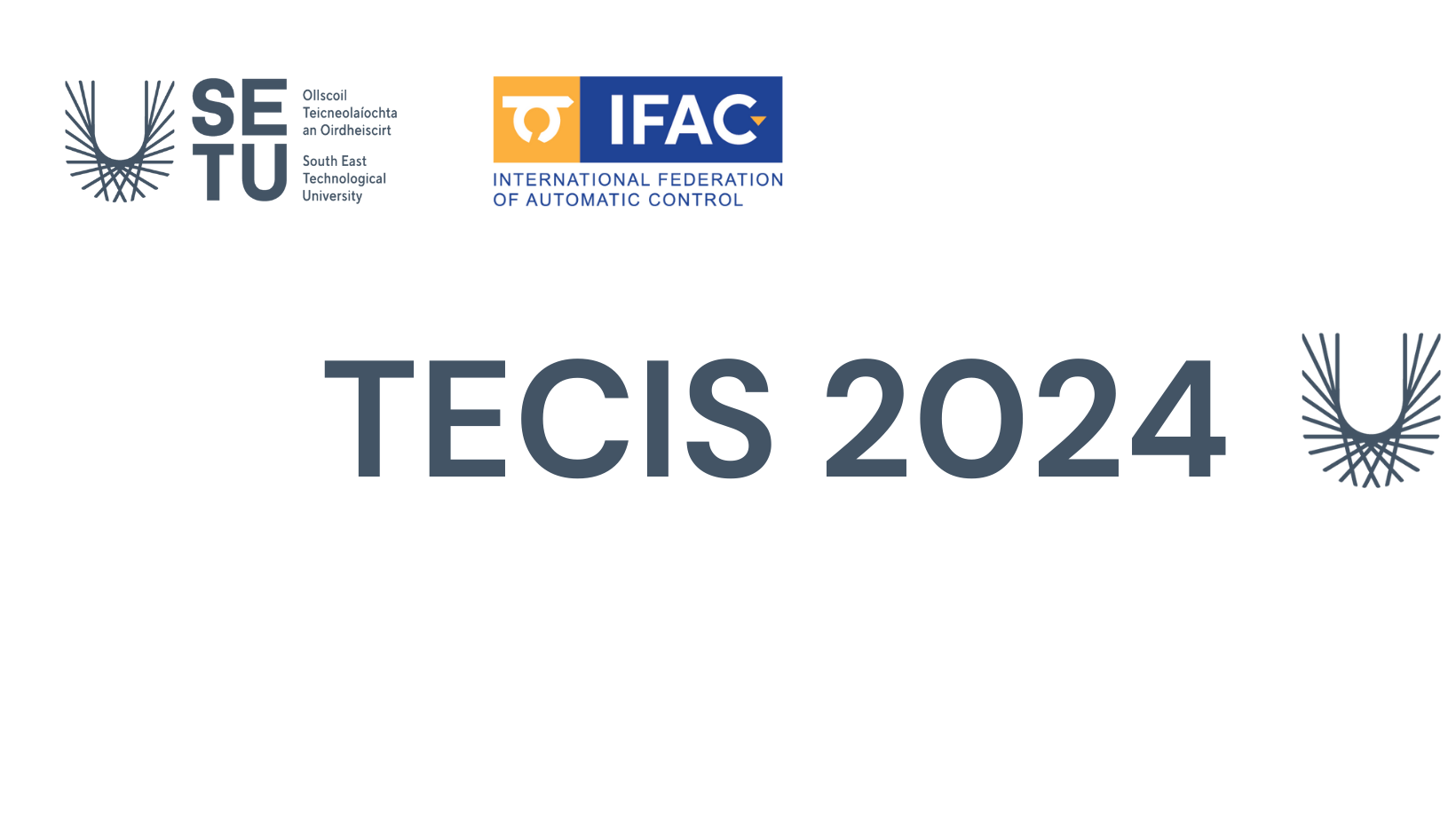PARTICIPATE
Submission
Proceedings of IFAC meetings are published online in the IFAC-PapersOnLine series, hosted on the Elsevier ScienceDirect service, which provides open access to the full text of all reviewed papers presented at IFAC events.Therefore all papers and session proposals should be submitted electronically through Papercept in PDF format.
All papers must conform to the submission policy requiring that all manuscripts be in 2-column format, following the IFAC conference paper format. Please refer to http://www.ifac-control.org/events/authors-guide for author instructions and for technical support on creating and uploading PDF files (required LaTeX and Office style files/templates can be downloaded from there).
Authors are invited to submit their contributions through the IFAC Submission Management System: ifac.papercept.net.
Deadlines and other dates
- 1st November 2023 – Submission Management System opens
1st December 202315th December 2023– Extended Deadline Open Invited Track Proposals is: 15th January, 2024.14th February 2024 – Regular Paper initial submission deadline: (Draft paper submission deadline)Extended Deadline to: Friday 08th March, 2024.- 1st April 2024 – Acceptance notification
- 21st April, 2024- Early registration rate expires
- 1st May – Final submission deadline
- 29th, 30th and 31st May, 2024 – Conference dates
Contact us with any questions: tecis2024@setu.ie
Visa Invitation Letter:
- If you require an invitation letter for your visa application, please request one from our conference organisers by contacting tecis2024@setu.ie Be sure to provide your full name, affiliation, passport details, and any other information required for the letter.
- Please apply for your visa well in advance to allow sufficient processing time.
- Start your visa application process as soon as possible to avoid any last-minute complications. Follow the instructions provided by the Irish Embassy or Consulate.
- Ensure that you have all the necessary documents, including your passport, visa application form, invitation letter, and any supporting documents requested by the embassy or consulate.
- Depending on your nationality and the purpose of your visit, you may apply for various types of visas, such as tourist, business, or conference visas. Make sure to select the appropriate visa type for attending the conference.
Contribution
Regular Contributions
Regular Contributions will be selected on the originality, technical soundness, quality of written exposition and relevance to TECIS topics. Initial submissions are at least 4 pages long and most 8 pages long, with a strict 6 pages limit for final manuscripts to be included in the IFAC-PapersOnLine proceedings. Presentations are in oral sessions during the conference in a 20 minutes format, including questions.
Open Invited Track Proposal
Open invited tracks focus on specific research topics and are to be proposed by track organizers. The proposals are listed on the conference website, and anyone can submit contributions for such tracks as long as the content of the contribution is adapted to the track topics. There is no limitation on the number of contributions per track. Open Invited Track Regular Contributions are reviewed following the same rules as Regular Contributions, and the Papers are published in the IFAC-PapersOnLine proceedings with a 6 pages limit. Open Invited Track Discussion Contributions are submitted in the form of an extended abstract of at most 4 pages. If accepted the extended abstract will NOT be included in the IFAC-PapersOnLine proceedings, but only in the preprints. The list of Open Invited Tracks can be found here
Regular and Open Invited Track Contributions
| Initial manuscript | 4 pages minimum, 8 pages maximum |
| Final paper | 6 pages maximum |
| IFAC standard peer review | By the International Program Committee |
| If accepted | Included in the IFAC-PapersOnLine proceedings + oral presentation |
Young Author Awards
In order to stimulate the involvement of young scientists and engineers in IFAC, as well as to recognize top-level contributions of the younger generation in the field, an IFAC Young Author Award is presented at TECIS2024. This is awarded for the best TECIS2024 paper of which the first and presenting author is the main contributor of the research results in the paper, and where
The candidate is less than 30 years old at the time of the event (motivated exemptions on the age criterion to deal with gender and cultural differences so as to allow for a fair competition are allowed).
Nominations are solicited after the final submission of papers is closed. Nominations are made by colleagues of the young author (no self-nominations). Nominations are done using the IFAC Submission Management System. The IFAC Young Author Award Selection Committee shall determine a short list of finalists, based on the gathered reviews and on their own reading of the paper. Based on both the written paper and the oral presentation given by the nominee, a winner is selected.
Copyright Conditions
All publication material submitted for presentation at an IFAC-sponsored meeting (Congress, Symposium, Conference, Workshop) must be original and hence cannot be already published, nor can it be under review elsewhere. The authors take responsibility for the material that has been submitted. IFAC-sponsored conferences will abide by the highest standard of ethical behavior in the review process as explained on the Elsevier webpage (https://www.elsevier.com/authors/journal-authors/policies-and-ethics), and the authors will abide by the IFAC publication ethics guidelines (https://www.ifac-control.org/events/organizers-guide/PublicationEthicsGuidelines.pdf/view).Accepted papers that have been presented at an IFAC meeting will be published in the proceedings of the event using the open-access IFAC-PapersOnLine series hosted on ScienceDirect (https://sciencedirect.com/). To this end, the author(s) must grant exclusive publishing rights to IFAC under a Creative Commons license when they submit the final version of the paper. The copyright belongs to the authors, who have the right to share the paper in the same terms allowed by the end user license, and retain all patent, trademark and other intellectual property rights (including research data).
